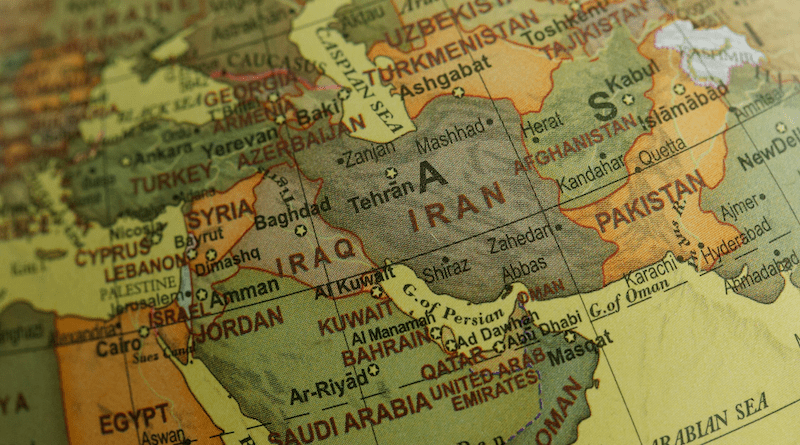Whispers Of The Ancients – OpEd
By Dr. Sahibzada Muhammad Usman
In a significant escalation of tensions in the Middle East, Iranian forces launched a considerable attack on Israel, involving an array of 185 drones, 110 missiles, and 36 cruise missiles. Israeli officials confirmed that the majority of these attacks originated from Iran, with additional contributions from Iranian-aligned forces in Iraq, Yemen, and Syria.
The scale and coordination of the assault underline the growing capabilities and reach of Iran in the region, marking a severe increase in hostilities that could have wide-ranging repercussions for regional stability and international security.
The attacks comprised a diverse arsenal indicating significant planning and resources. Of the total weaponry deployed, drones and cruise missiles played a prominent role, designed to penetrate Israeli defenses by overwhelming radar and anti-missile systems through sheer volume and coordinated launch patterns. While the majority of these were launched directly from Iranian territory, the involvement of Iranian-backed groups in neighboring countries highlights the extent of Iran’s influence and its ability to orchestrate complex military operations across multiple fronts.
In response to these severe attacks, the United States has taken a frontline role in defending its ally. According to US officials, American forces successfully engaged and neutralized a significant portion of the threat. More than 70 Iranian drones and at least 3 ballistic missiles were shot down by US forces, showcasing the effectiveness and readiness of American military assets in the region.
Particularly noteworthy was the action taken by US warships stationed in the Mediterranean Sea, which intercepted 3 Iranian ballistic missiles. This naval response highlights the strategic placement and capability of US naval forces, equipped with advanced missile defense systems capable of engaging a variety of aerial threats. The US administration has further noted that over 100 ballistic missiles were fired towards Israel, indicating the scale of the Iranian assault and the intensity of the US counter-response. In the Mediterranean, the presence of two US destroyers equipped with systems to shoot down guided missiles was crucial in mitigating the impact of the attack.
This incident not only marks a significant escalation in direct hostilities between Iran and Israel but also signifies a critical moment for US involvement in the region. The readiness and willingness of the US to deploy its military assets in defense of Israel reaffirm the strong strategic alliance between the two nations and send a clear message to Iran and its allies regarding the seriousness with which the US views its commitments in the Middle East. The broader implications for regional security are profound. With tensions already high, the potential for further escalation is significant, and the international community must closely monitor the situation to respond appropriately. The involvement of multiple actors across different territories complicates the diplomatic landscape, making a peaceful resolution challenging but necessary.
The air attack on the Iranian embassy in Damascus, which resulted in the death of seven Iranian military officers, has been a critical flashpoint. Iran views this attack as a direct provocation, attributing it to Israeli aggression. The incident has not only inflamed tensions but also served as a potential catalyst for a broader regional confrontation.
The implications of this tense situation extend far beyond the immediate concerns of military conflict. For the Middle East, a region already beset by numerous conflicts and humanitarian crises, any escalation could exacerbate existing challenges and hinder efforts towards peace and stability. The international community, particularly actors such as the United States, Russia, and the European Union, faces the daunting task of navigating these tensions, promoting dialogue, and preventing an outbreak of hostilities that could have devastating consequences.
Moreover, this situation highlights the broader geopolitical struggle for influence in the Middle East, involving not just regional powers like Iran and Israel but also global superpowers. The United States, with its longstanding alliance with Israel, finds itself in a particularly delicate position, balancing its strategic interests with the need to avoid further destabilization of the region.
As the situation develops, the international community must consider both immediate responses to ensure security and longer-term strategies to address the underlying tensions that have led to such a severe military engagement. The role of diplomacy will be crucial in navigating the complex political dynamics and in preventing a further spiral into violence.

